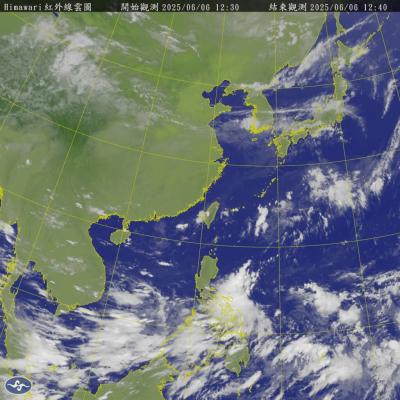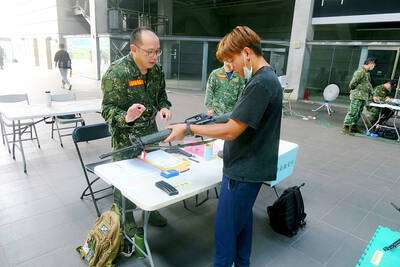With a reconciliatory atmosphere slowly emerging in some political circles, a Democratic Progressive Party (DPP) lawmaker yesterday suggested that the DPP revise or even remove support for Tai-wanese independence, though senior DPP members quickly opposed the idea.
DPP Legislator Lee Wen-chung (李文忠) yesterday proposed that the DPP adjust the "Taiwan independence clause in the party program and make it consistent with the content of the Resolution on Taiwan's Future," or remove it altogether.
The Taiwan independence clause was passed by the DPP in 1991. It said that Taiwan had to establish its own state and enact a new constitution based on the reality that Taiwan enjoyed independent sovereignty. It did not recognize the present Constitution enacted by the Chinese Nationalist Party (KMT) government in 1947.
To ease public concerns about its stance on independence, the DPP then issued the "Resolution on Taiwan's Future" in 1999, which said Taiwan is an independent sovereign state, the name of which is the "Republic of China." Taiwan was also said to be neither a province nor a special administrative region of China.
"If the DPP and the People First Party (PFP) are going to cooperate with each other in all seriousness, both sides have to deal with the most sensitive and the most pivotal parts of their basic stance," Lee said.
He said that coalition governments have existed in Europe for a century, and that if the DPP and PFP cannot find shared ground in terms of policy and political approach, any coalition government formed by the two parties would be fragile.
"It wouldn't last long. Perhaps only three months, or three days," Lee said.
Lee also said he would invite other DPP legislators concerned about the matter and its impact on cross-strait affairs to hold a forum after elections for DPP chairman at the end of month.
Responding to Lee's suggestion, DPP caucus whip Tsai Huang-liang (
"Lee's suggestion does not make sense because the Taiwan independence clause was replaced by the `Resolution on Taiwan's Future' in 1999," Tsai said. "There is no issue of removing clauses here.
"I don't think the PFP would work with us just because we removed the Taiwan independence clause. The key for cooperation between the two parties doesn't lie in this clause," he added.
DPP Legislator Kao Jyh-peng (高志鵬) agreed, saying that the clause was now "a historical document" and that the Resolution on Taiwan's Future represented the party line.
Meanwhile, PFP caucus whip Liu Wen-hsiung (劉文雄) yesterday said that the PFP would not comment on Lee's remarks, saying that they were the opinions of a single lawmaker, though the PFP would observe developments.

STAY AWAY: An official said people should avoid disturbing snakes, as most do not actively attack humans, but would react defensively if threatened Taitung County authorities yesterday urged the public to stay vigilant and avoid disturbing snakes in the wild, following five reported snakebite cases in the county so far this year. Taitung County Fire Department secretary Lin Chien-cheng (林建誠) said two of the cases were in Donghe Township (東河) and involved the Taiwan habus, one person was bit by a Chinese pit viper near the South Link Railway and the remaining two were caused by unidentified snakes. He advised residents near fields to be cautious of snakes hiding in shady indoor areas, especially when entering or leaving their homes at night. In case of a

A tropical disturbance off the southeastern coast of the Philippines might become the first typhoon of the western Pacific typhoon season, the Central Weather Administration (CWA) said. The system lacks a visible center and how it would develop is only likely to become clear on Sunday or Monday, the CWA said, adding that it was not yet possible to forecast the potential typhoon's effect on Taiwan. The American Meteorological Society defines a tropical disturbance as a system made up of showers and thunderstorms that lasts for at least 24 hours and does not have closed wind circulation.

ENERGY RESILIENCE: Although Alaska is open for investments, Taiwan is sourcing its gas from the Middle East, and the sea routes carry risks, Ho Cheng-hui said US government officials’ high-profile reception of a Taiwanese representative at the Alaska Sustainable Energy Conference indicated the emergence of an Indo-Pacific energy resilience alliance, an academic said. Presidential Office Secretary-General Pan Men-an (潘孟安) attended the conference in Alaska on Thursday last week at the invitation of the US government. Pan visited oil and gas facilities with senior US officials, including US Secretary of the Interior Doug Burgum, US Secretary of Energy Chris Wright, Alaska Governor Mike Dunleavy and US Senator Daniel Sullivan. Pan attending the conference on behalf of President William Lai (賴清德) shows a significant elevation in diplomatic representation,

The Taipei City Reserve Command yesterday initiated its first-ever 14-day recall of some of the city’s civilian service reservists, who are to undergo additional training on top of refresher courses. The command said that it rented sites in Neihu District (內湖), including the Taipei Tennis Center, for the duration of the camp to optimize tactical positioning and accommodate the size of the battalion of reservists. A battalion is made up of four companies of more than 200 reservists each, it said. Aside from shooting drills at a range in New Taipei City’s Linkou District (林口), the remainder of the training would be at